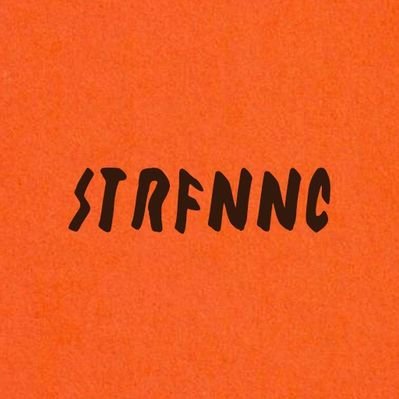I’m a guy approaching 60, so I’ll start by saying my perception may be wrong. That could be because the protest songs from the late 60’s and early 70’s weren’t the songs I heard live on the radio but because they were the successful ones that got replayed. More likely, it’s because music is much more fractured than what I was exposed to on the radio growing up. Thus, today, I’m simply not exposed to the same type of protest songs that still exist.
Whatever the reason, I feel that the zeitgeist of protest music is very different from the first decade of my life compared to the last.
I’m curious to know why. My conspiratorial thoughts say that it’s down to the money behind music promotion being very different over those intervening decades, but I suspect it’s much more nuanced.
So, why are there fewer protest songs? Alternatively, why I am not aware of recent ones?
Definitely not fewer protest songs. Lots of “new” protest genres exist now (punk, rock, rap, hiphop, reggae, still folk, etc.). Radio and television are way less relevant for reaching « protest » audiences (generally younger). Without the risk of conscription into a foreign war, the anti classist/racist/authoritarian protest likely sounds different.
The times, they are a-changing(but not much)
I listen to a lot of punk music and about a quarter of my library happens to be anti-war songs just because I like punk rock
Honestly reading this thread I just had the song White People For Peace by Against Me! pop into my head. Another good one to note is Survivor Guilt by Rise Against
A quick stroll down a single playlist:
Anti-Flag, Kendrick Lamar, Rage Against the Machine, Nas, The Casualties, Veil of Maya, Lil Nas X, Nirvana, MIA, Childish Gambino, The Vandals, JayZ, J Cole, Mdou Moctar, Juiceworld…
That’s not even getting into the stuff Im aging out of(and still quietly loving).
Man, the kids are alright.
Survivor guilt is a good one, that whole album gets me.
“Make it stop” is another that just punches me in the gut.
Lindsay Ellis did a great video essay on why protest songs in the early 2000s were so different from the protests of the 60s and 70s. In my opinion, American culture hasn’t shifted to make her points less valid today.
Here is an alternative Piped link(s): https://piped.video/watch?v=ehbgAGlrVKE
Piped is a privacy-respecting open-source alternative frontend to YouTube.
I’m open-source, check me out at GitHub.
Is there a text abstract of her thesis somewhere?
Yeah, I’m curious but not 37 minutes curious.
Came here to link this! Definitely worth watching, OP!
The music industry and how the money works now are fundamentally different than how it was back then so keep that in mind while you’re wearing the tinfoil hat
There’s protest music, but it’s also different than back then. Now most of it exists in the more marginalized communities like the queer or poc space, as opposed to the mostly white hippie movement for example
One bigger name that comes to mind now is Kendrick Lamar.
https://www.complex.com/music/a/j-mckinney/kendrick-lamar-alright-protest-song
It’s easy to get stuck in a music bubble. You have to work to find new music.
One really simple answer: people of popular-music-making age in the ‘60s and ‘70s were worried about getting drafted into a useless war. Sure we have plenty to be upset about, but the visceral threat of you or those you care about getting shipped off to ‘Nam was fertile ground for protest songs to become a major chunk of that era’s pop music.
Essentially popular music is made via assembly lines owned by manufacturers now.
- People churn out beats.
- Other people lay down gibberish lyrics to set a melody to the best from step 1.
- The best from step 2 get, writers, actual lyrics and an artist.
- Artist records
- Engineers heavily rework the recorded vocals
The companies that run these assembly lines aren’t going to rock the boat like that. Writers that neither made the music nor will have any part of recording or performing are making a product. It’s not a passion project, so they aren’t going to write protest lyrics either. In the 60s and 70s, there was a lot of popular music that really was made by individual artists and bands.
Today, there is plenty of protest music. It’s just not popular music because it doesn’t have as much industry backing.
there’s a few different reasons that I can see
-
there were fewer people total, so fewer bands - ie: less trash to sort through / increased popularity
-
there’s arguably more things to protest about nowadays but because of that there’s fewer things that both resonate with a lot of people and sound good at the same time
-
if everyone is protesting, no one is. there’s too many different slogans being called out, too many different groups to support (ie: buy the album or give them radio time), and many of those groups are at odds with each other.
-
technological advancement - radio is seen as a dead medium to many these days, there are far more ways to consume media than to listen to the radio. it may be that protest songs just dont air on the radio for that reason alone - their target demographic doesnt listen to radio.
-
There is still tons of protest music out there and I’ll list some at the bottom. It might be the music you listen to and are exposed to might not be as angry at the man because as you become older you become the man, man. Also the shift to streaming has allowed 1000 flowers to bloom and it’s hard to see them all especially if you haven’t looked at genres like rap and metal that didn’t get big till the 80s
No man is without fear - fit for an autopsy Constitutional - job for a cowboy Every song by arcania Wage slaves - all shall perish Genocide - suicide silence
Probably because you’re not listening to rap/hip-hop.
I’m guessing but maybe music was less industrialised 50 years ago.
My understanding is that a lot of money goes into producing the music we hear on popular media.
Protest songs can’t be commercialised.
Unfortunately, protest songs could absolutely be commercialised.
While not exactly protest songs, the grunge movement of the 90s was a reaction to what was seen as shallow, packaged pop music of the late 80s.
Once their snouts smelled profit, the usual middlemen rushed in to wrap that discontent in plastic and sell it to kids at Walmart, chewing up musicians along the way.
I think it’s simply that protest songs are more difficult to wring profit from compared to creating pop music using the formula that sold the most last time.
You’d be surprised what you can find. This one is from a videogame soundtrack. Goes pretty hard.
https://open.spotify.com/track/4SxtjfUfvCe4NoeDAY0YhF?si=zmxs4AE5RsWljbQzKlkhcA
Sounds like Refused
Just incase you didn’t actually know, but that is Refused, they were hired to make the music as the fictional band in the game!
Haha I didn’t know, that makes a lot of sense then
Your protest songs didn’t do anything, so there’s that
A lot of that energy has gone to rap/hip hop. Listen to NWA.
NWA was 87-91, over 30 years ago at this point. The gap between I feel like I’m fixing to die by Country Joe and Fuck the Police by NWA is smaller than the gap between Fuck the Police and today
True. I don’t follow rap at all, so they were the only ones I could think of.
deleted by creator










